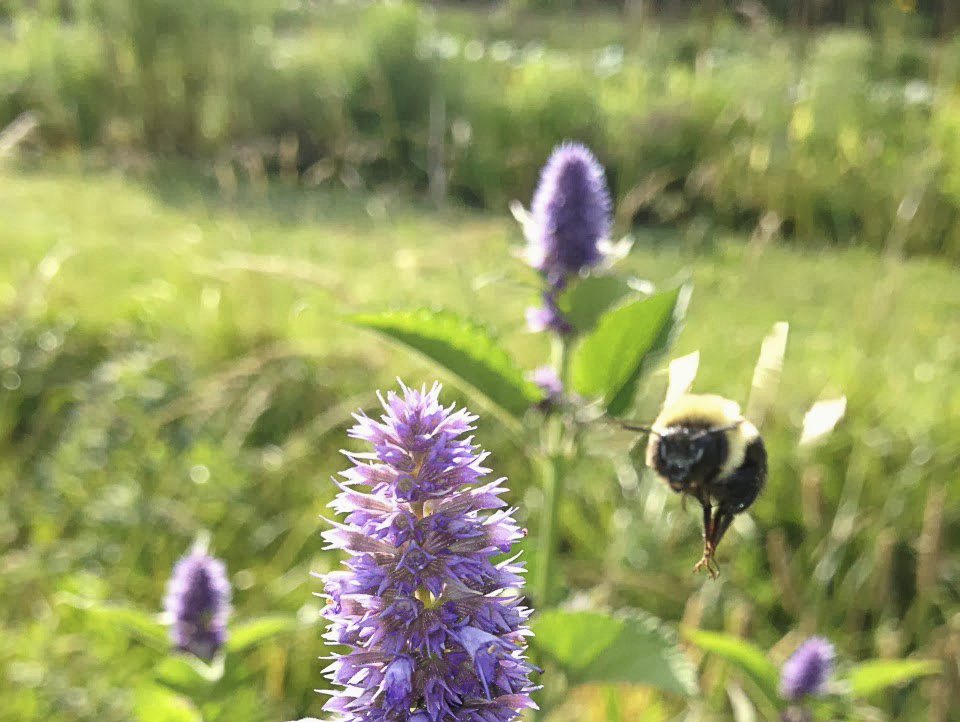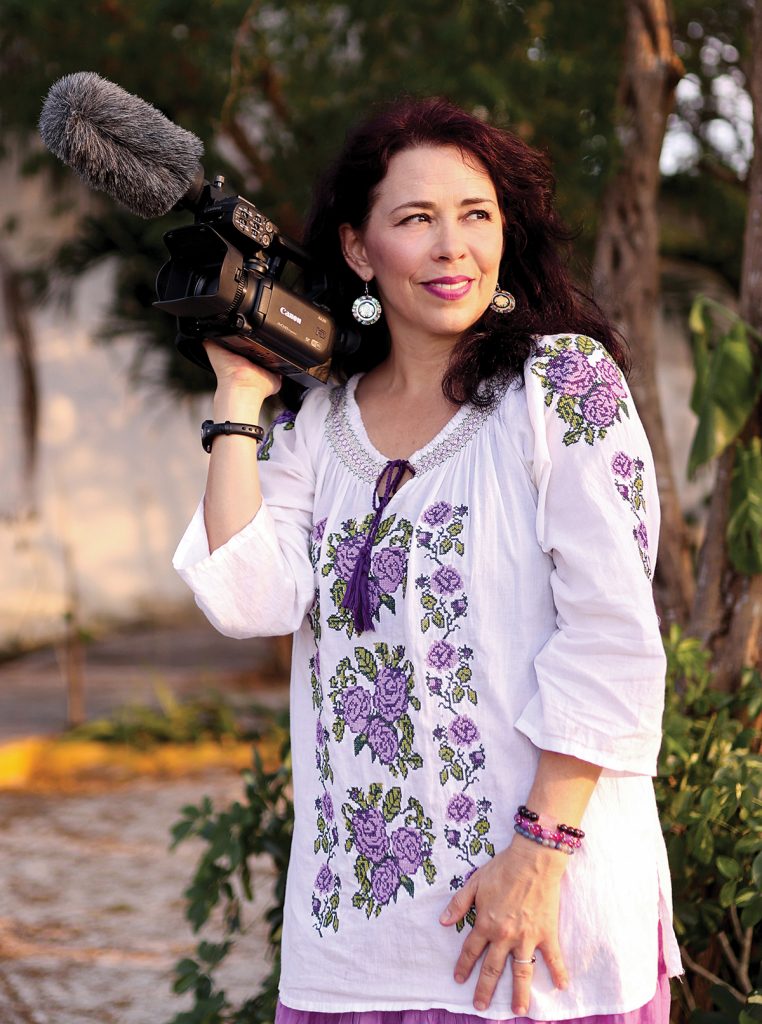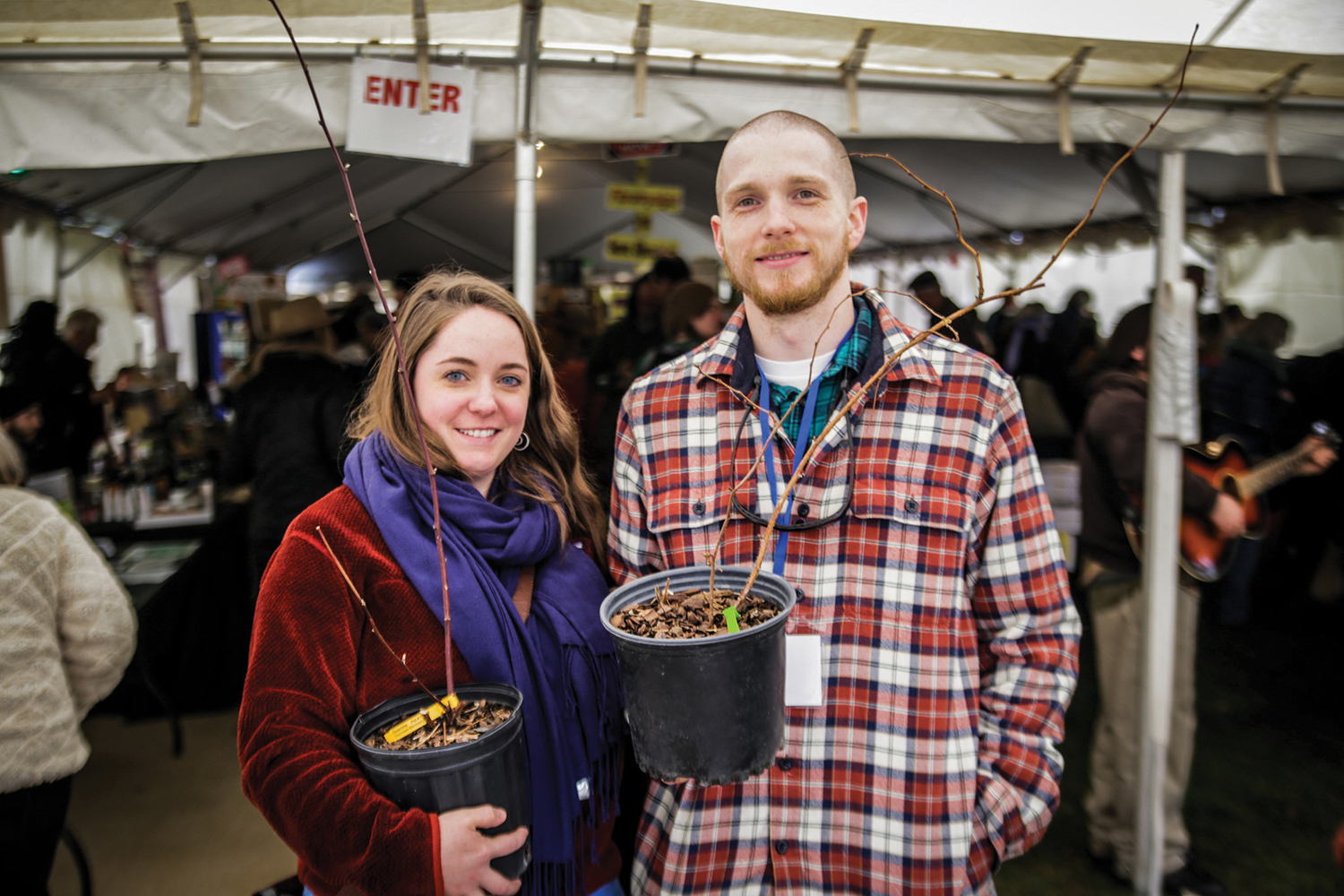
A bee hovering near hyssop flower.
National Pollinator Week’s official dates are June 15-21, but the vibrant local beekeeping community is getting a flying start. Living Web Farms will host a “Keeper of the Bees” roundtable discussion on Saturday, June 13, from 1:30-7 pm, on location in Mills River.
The curated panel will feature eight local beekeepers, farmers, and conservation experts, and is expected to also draw attention from the national and global bee-activist community, via webinar. Panel facilitator Diane Almond, a well-known educator/activist from Henderson County, remarks in a press statement, “People have been hearing about pollinators in crisis for some years now, but still have no real understanding of what’s wrong, or what they can do.”
Bees pollinate crops. They make the food chain go round. Without them, the world would be in rather unimaginable trouble.
Colony Collapse Disorder was officially identified in 2006, and pesticides are thought to play the role of lead villain in the drastic disappearance of western honeybees. However, the situation is complicated. Certain theories have proved contradictory, farmers and conservationists are often at cross purposes, and the newly popular trend of planting pollinator habitats (i.e., gardens full of bee-friendly plants) sounds lovely – but the practice courts controversy. (For instance, some plants attractive to honeybees are invasive species that do their own brand of earthly damage.)
Meanwhile, last year, beekeepers reported a 40% decline in hive loss. By some accounts, bumblebee and monarch-butterfly populations are in even more serious trouble.
The complexities of the situation “challenge us to dig deeper into existing assumptions,” according to Meredith Leigh, education and outreach coordinator at Living Web Farms.
Saving honeybees is a sticky topic, and divisiveness has become the norm. At this point, though, “the status quo won’t do,” says Leigh in a talk with Bold Life.
No one wants to see bees go. Feelings run hot – but sentimentality and agriculture don’t mix. And preservationists who are invested in big-picture consequences don’t naturally see eye-to-eye with farmers trying to salvage their livelihood.
“For someone like me, with a deep background in sustainable agriculture, the dueling interests within the pollinator question are not surprising,” says Leigh. “Folks who are daily immersed in land-management questions wrestle constantly with tricky holistic thought. But for others, I think it’s important to offer continued opportunities to take a glimpse into the vast considerations of nature.
“We have to balance the tension,” she stresses. “Often, just gaining an understanding that we can’t fully understand what happens is a giant step forward in becoming good stewards.”
It’s about letting go of control in areas where it doesn’t count. “We have to agree to disagree,” says Leigh. “Hopefully, there will be areas where our differing opinions will lead to compromise and positive action.”
See www.livingwebfarms.org for information about attending the panel live or via the webinar, or e-mail Meredith@livingwebfarms.org


